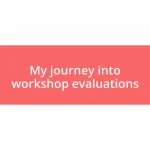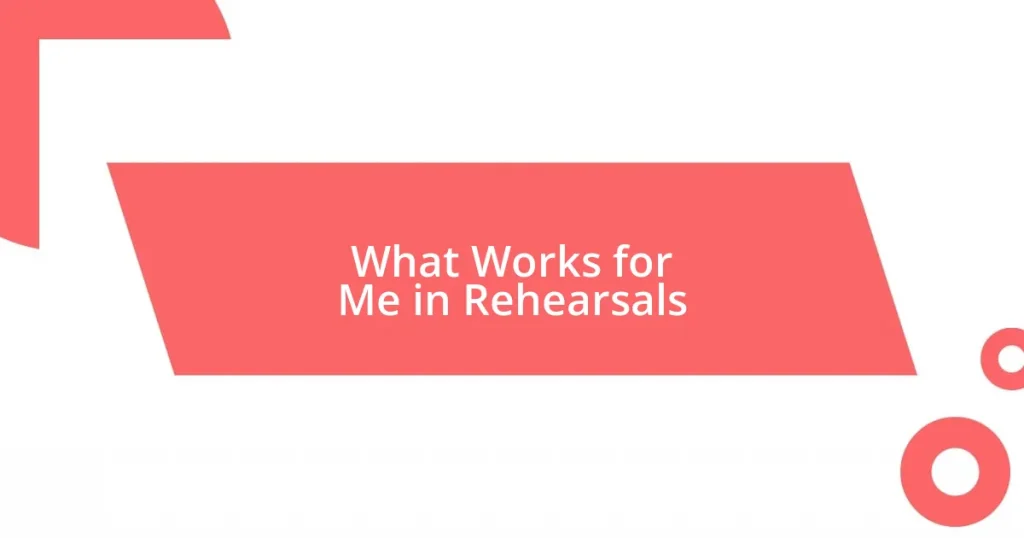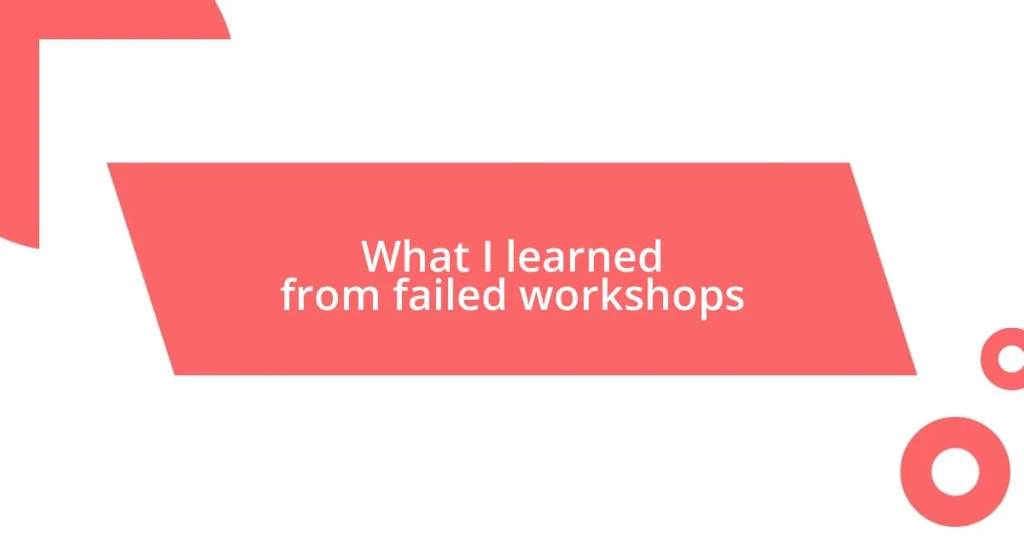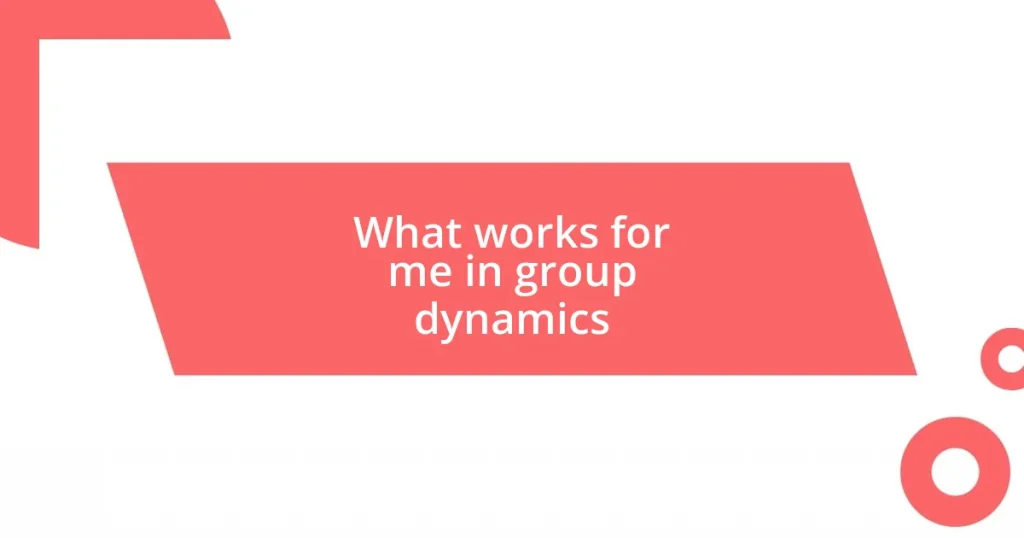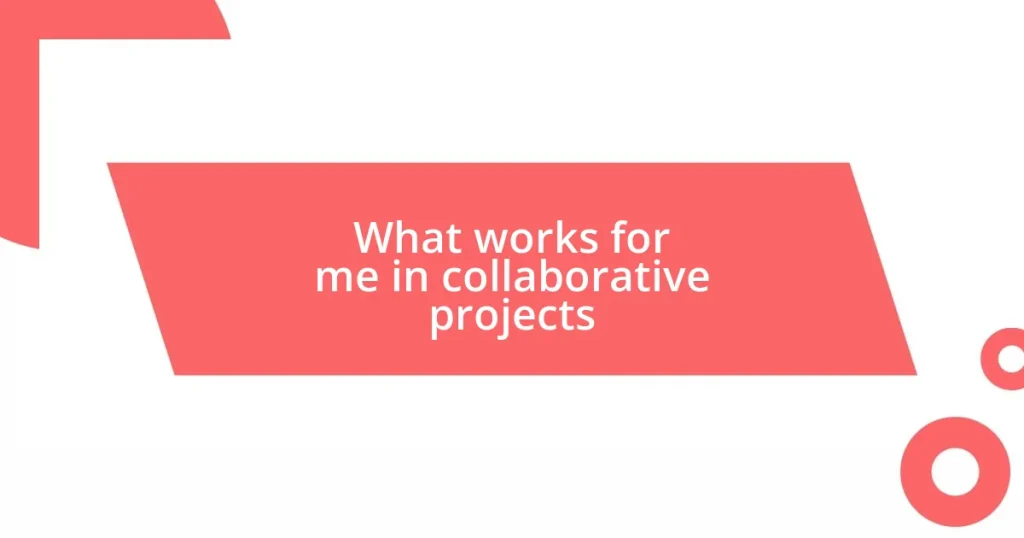Key takeaways:
- Establishing clear rehearsal goals enhances engagement and fosters growth in performance.
- Creating a productive environment, including organizing space and ensuring comfort, boosts focus and collaboration among cast members.
- Effective communication, both verbal and non-verbal, is crucial for genuine connections and elevating the creative process.
- Incorporating diverse rehearsal techniques, like improvisation, keeps the process dynamic and encourages organic discoveries in character and scene development.
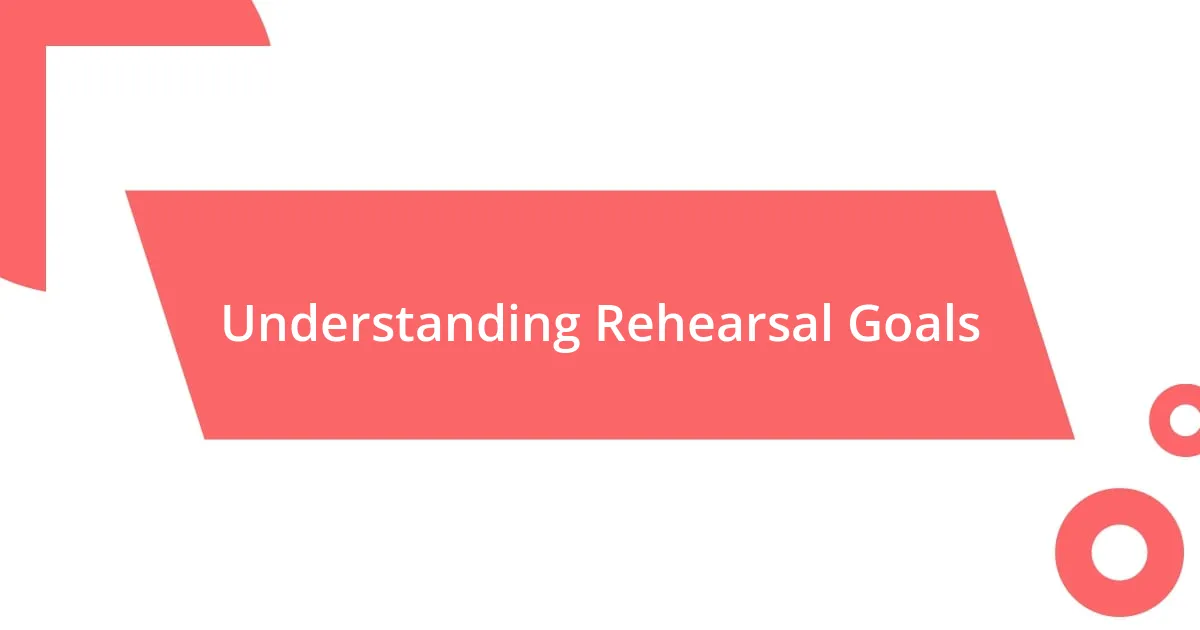
Understanding Rehearsal Goals
Understanding rehearsal goals is crucial for making the most out of our practice sessions. When I first started rehearsing, I often approached it casually, thinking it was just about running lines or blocking scenes. It took me time to realize that having defined goals transforms rehearsals into meaningful experiences. What would it look like to have clarity on what I wanted to achieve each time?
One time, I structured my rehearsal with a specific focus on emotional authenticity. It was liberating to dive deep into my character’s motivations and goals. I asked myself, “What does my character truly feel in this moment?” This simple but potent question opened up new layers of my performance that I hadn’t tapped into before. Focusing on specific aspects made every rehearsal richer and more engaging.
By aligning my goals with tangible outcomes, I found that each session became an opportunity for growth. I still remember the thrill of nailing a tough scene after working on it with clear intentions. This focused approach not only built my confidence but also created a stronger connection with my fellow cast members. Isn’t it amazing how a little clarity can lead to such powerful transformation?
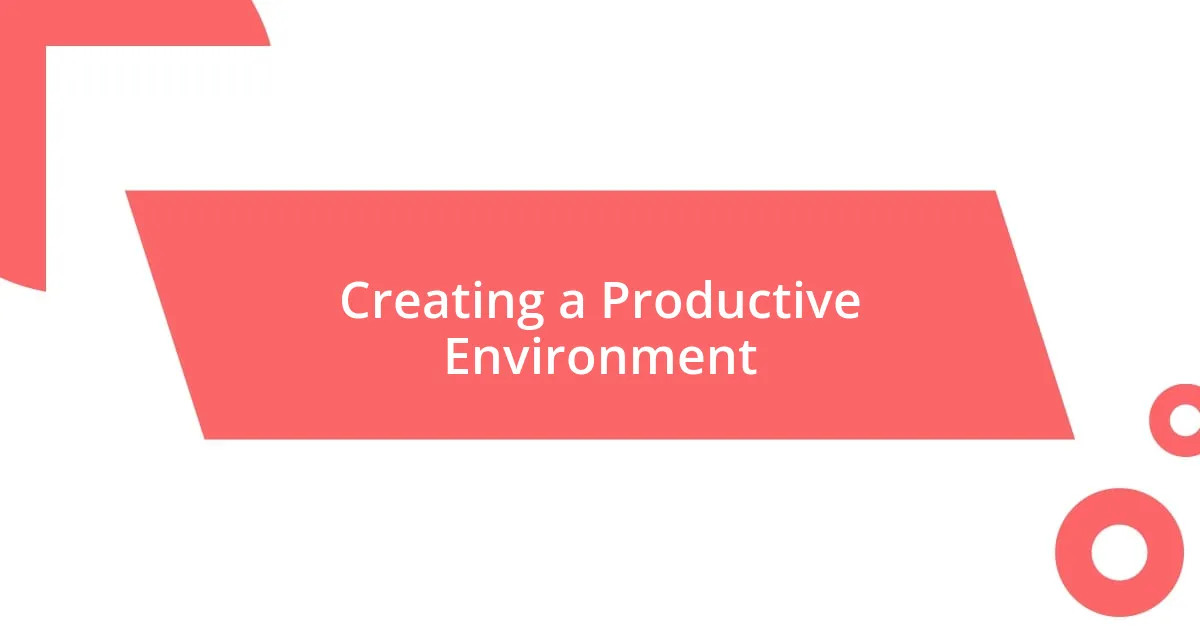
Creating a Productive Environment
Creating a productive environment is essential in rehearsals. Personally, I’ve found that a clutter-free space can significantly enhance my focus. Each time I enter a rehearsal room, I take a moment to set the atmosphere. I arrange the chairs, clear any unnecessary props, and ensure that the area is comfortable yet professional. This small act of organization makes a big difference in how I engage with the material.
- Evaluate lighting: Soft, natural light can improve mood and focus.
- Set a consistent temperature: Comfort matters; neither too hot nor too cold.
- Use background music: I often play calming tunes before starting, which helps center everyone.
- Foster open communication: I encourage my fellow cast members to share thoughts on the scene openly.
- Personal touches: I sometimes bring in a small token or photo that inspires me, creating a more intimate connection with the space.
The environment we create speaks volumes about our commitment to the rehearsal process. Over the years, I’ve realized that these elements not only enhance productivity but also build camaraderie among the cast. Each rehearsal becomes a shared journey, filled with trust and creativity.
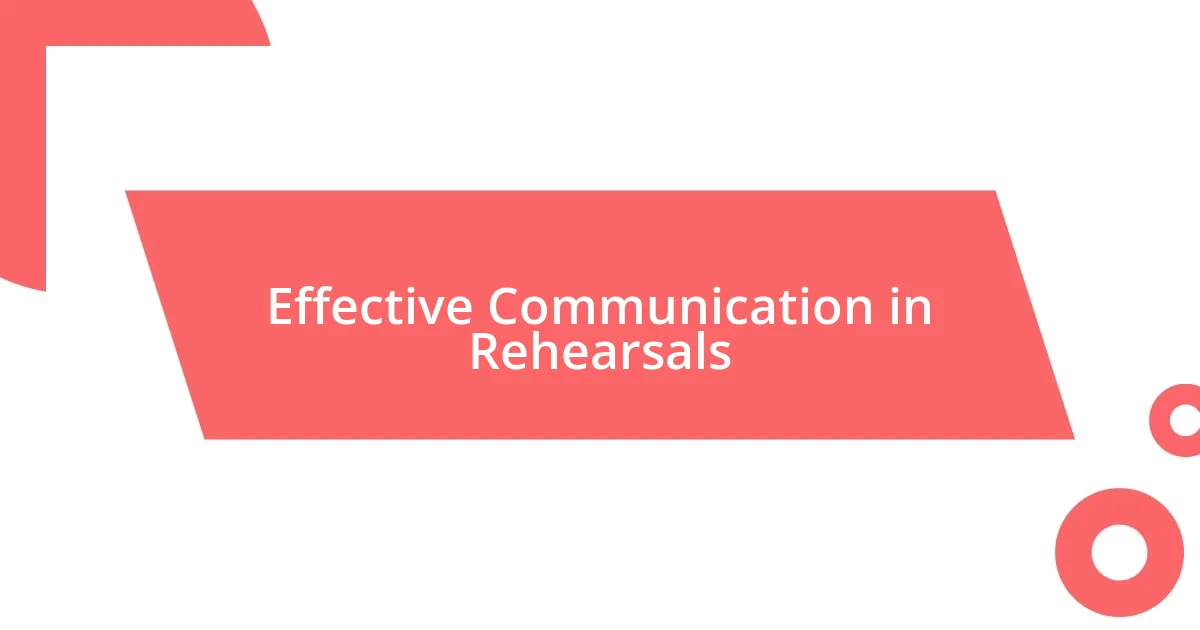
Effective Communication in Rehearsals
Effective communication during rehearsals truly shapes the entire creative process. I remember a rehearsal where our director encouraged us to voice our thoughts without hesitation. This free-flowing exchange elevated our work, revealing ideas that we wouldn’t have considered otherwise. When I expressed my interpretation of a line, it sparked a discussion that led to a collective breakthrough. Have you ever felt that rush when a simple conversation shifts the energy in the room?
I also learned the power of non-verbal cues. In a particular rehearsal, we had a scene where the emotions were raw and unspoken. I focused on my facial expressions and body language to convey what words couldn’t. The result was electric. It reinforced my belief that effective communication isn’t just about talking; it’s about expressing deeply and connecting on a level that transcends dialogue.
Being present in the moment is vital for effective communication. I’ve had days when my mind was elsewhere, and it showed in my performance. Yet, when I actively listened to my castmates, I could respond naturally and authentically. That engagement turned rehearsals into exhilarating dialogues. I often remind myself, “How can I truly listen and respond right now?” This mindset transforms not just rehearsals but the entire way we connect as a team.
| Type of Communication | Impact |
|---|---|
| Verbal Communication | Encourages idea sharing and dialogue, leading to breakthroughs. |
| Non-Verbal Communication | Enhances emotional depth, creating connection beyond words. |
| Active Listening | Fosters genuine reactions and real-time collaboration. |
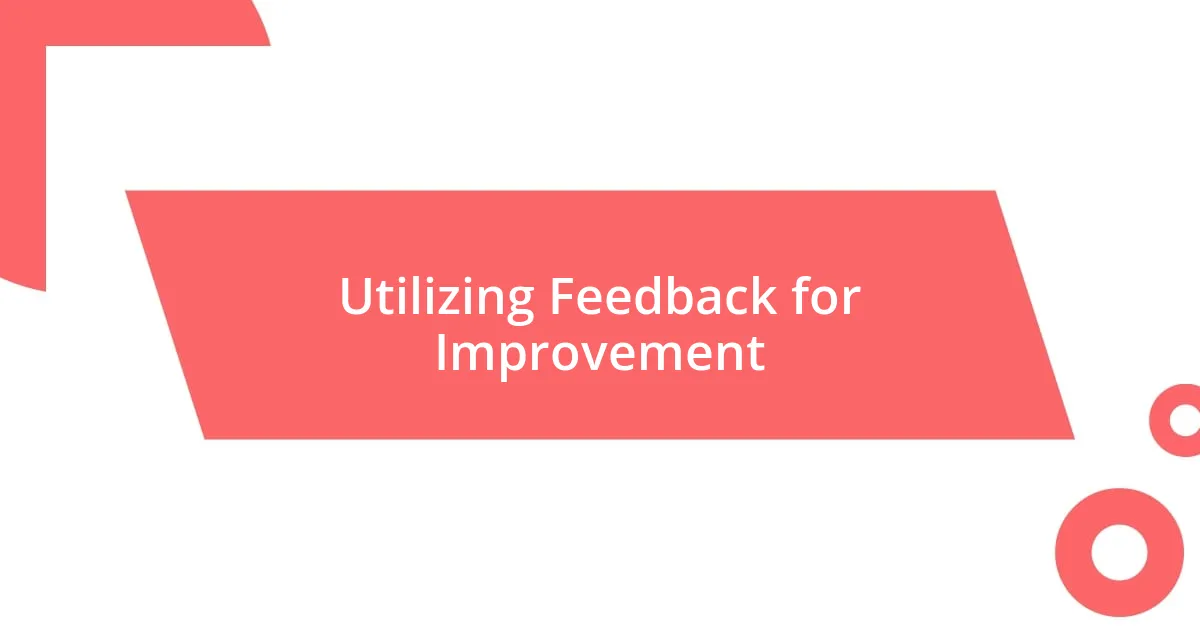
Utilizing Feedback for Improvement
Utilizing feedback in rehearsals is a powerful tool for growth. I vividly recall a moment when I received constructive criticism from a fellow actor about my delivery. Initially, it stung a little, but as I reflected on it, I realized that they were right. The next time I approached the scene, I softened my tone, which transformed not just my performance but also how the audience connected with the character. Have you ever experienced a similar moment where feedback turned a struggle into a breakthrough?
Incorporating feedback often means being open to vulnerability. I remember a rehearsal where our director suggested integrating an entirely different physicality into my character. At first, I hesitated, worried about stepping outside my comfort zone. But embracing that suggestion led to an authentic portrayal that felt more true to the story. I always remind myself that each piece of feedback is an opportunity, a stepping stone toward not just improvement but discovery.
Regularly encouraging feedback within the group creates a culture of support and trust. There was a particular rehearsal where I organized a brief “feedback circle” at the end of our session. Each person shared one positive observation and one area for improvement for their peers. The resulting camaraderie was palpable, and I felt inspired to push my limits. Can you imagine how much we could achieve if we collectively embraced the insights of everyone in the room?
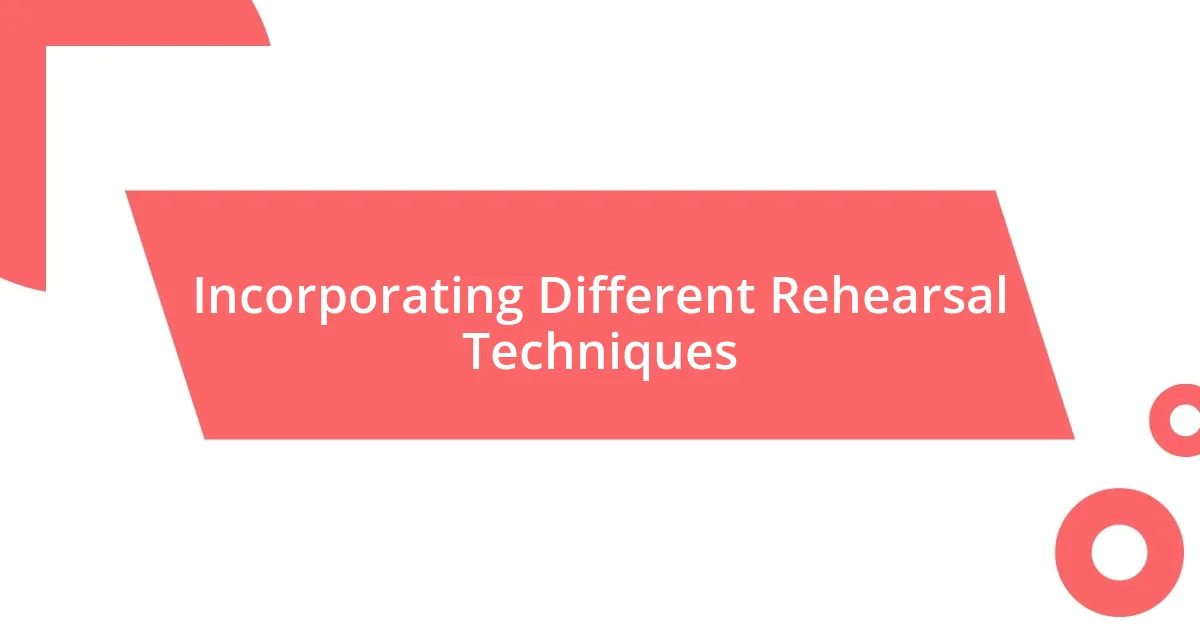
Incorporating Different Rehearsal Techniques
Incorporating different rehearsal techniques can profoundly change how we approach our craft. For instance, I once tried a rehearsal method where we started with a cold read—no rehearsing ahead of time. This technique pushed me out of my comfort zone, forcing me to rely solely on instinct and trust my fellow actors. It was exhilarating to explore new layers of my character without the safety net of memorization. Have you ever felt that adrenaline rush that comes with diving into the unknown?
Another method I’ve found effective is the use of improvisation. During one rehearsal, we set aside the script entirely and just let our characters react in real time to each other. This approach opened up unexpected dynamics and enriched the relationships between our roles. I remember vividly how one improvised moment turned into the emotional core of our scene, something none of us had planned. Isn’t it fascinating how stepping away from the script can lead to such organic revelations?
I also like to incorporate visual and auditory elements into rehearsals. In one instance, I suggested playing music that matched the emotional tone of the scene we were working on. This small change transformed our focus and heightened our emotional responses. I believe that blending varied techniques not only keeps rehearsals fresh and engaging but also cultivates an environment where creativity can flourish. How do you keep your rehearsals dynamic and inspiring?
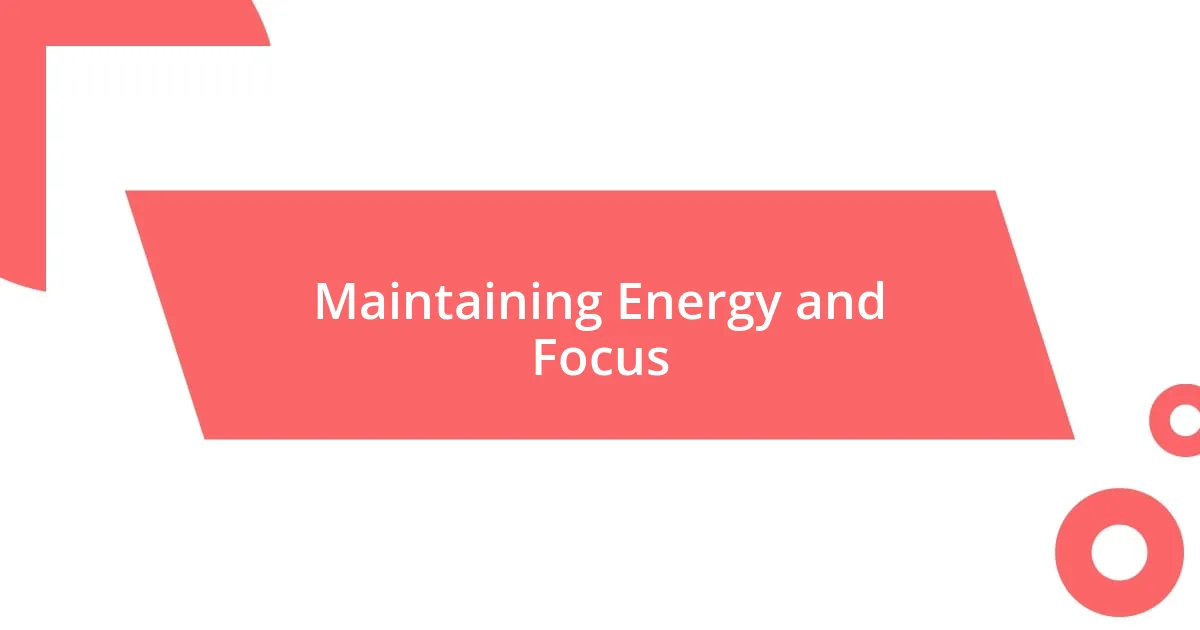
Maintaining Energy and Focus
When it comes to maintaining energy and focus during rehearsals, I’ve learned that simple rituals can make a significant difference. For example, I’ve started incorporating a quick physical warm-up before diving into our scenes. It’s a game-changer! Just a few minutes of stretching or light movement helps shake off any residual fatigue and primes my body and mind for the work ahead. Have you tried a similar approach?
I also find that setting clear intentions at the beginning of a rehearsal session is incredibly grounding. Before we start, I like to take a moment with the group to discuss what we hope to achieve. This practice not only keeps everyone aligned but also creates a collective energy that’s infectious. There was one rehearsal where, after sharing our goals, the momentum was electric—we all fed off each other’s excitement, and I could feel the focus sharpening. Doesn’t it feel amazing when everyone is on the same wavelength?
Lastly, I’ve discovered that taking short breaks can be surprisingly effective for maintaining energy. In one rehearsal, we decided to break every 45 minutes to check in and regroup. This allowed us to recharge and reflect on our progress, keeping the enthusiasm bubbling throughout the session. I noticed that those brief pauses often led to our most creative exchanges. I encourage you to consider how you might implement similar strategies to keep your rehearsals invigorating and focused. What practices have you found most helpful in sustaining that elusive energy?
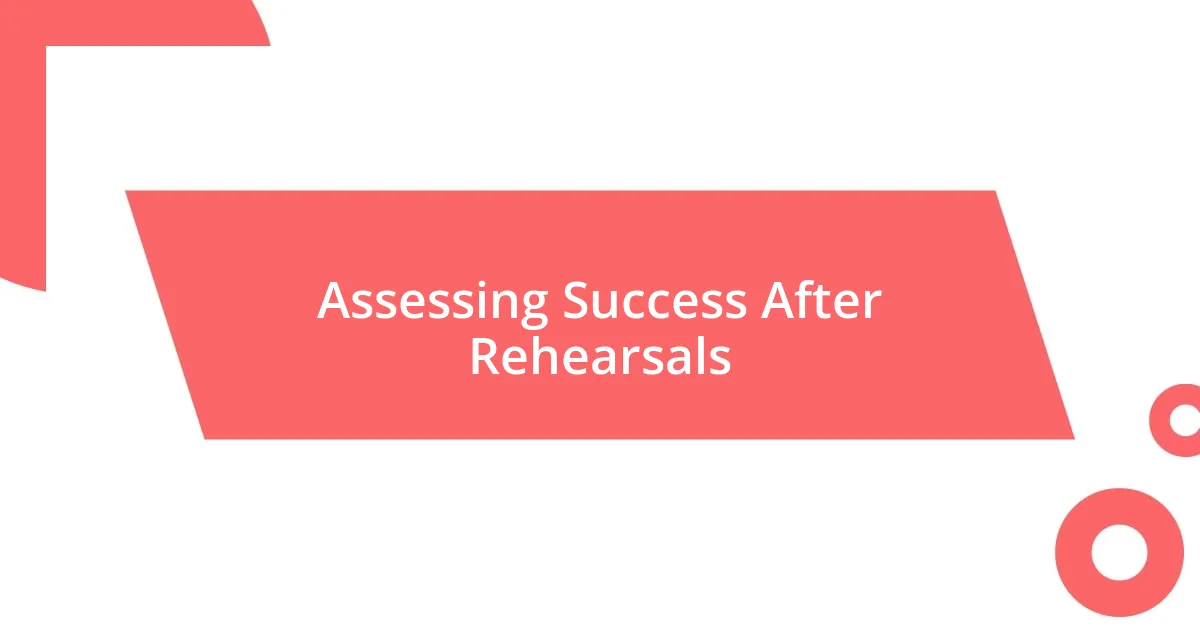
Assessing Success After Rehearsals
After a rehearsal, I always take a moment to reflect on what worked and what didn’t. I remember one time, after a particularly intense scene, I felt an overwhelming sense of accomplishment. The energy in the room had shifted, and I knew we had tapped into something raw and authentic. Isn’t that feeling of success the most rewarding part of our craft?
I find it helpful to gather feedback from my fellow cast members as well. There was an instance when we ended a rehearsal and I asked everyone to share one thing they felt went well and one area for improvement. The honesty and openness that emerged deepened our trust and camaraderie. It’s incredible how those little moments of communication can create a real sense of progress, don’t you think?
Tracking our progress over time is another vital aspect of assessing success. I keep a rehearsal journal where I jot down my thoughts, emotions, and key takeaways from each session. Looking back, I can see how far we’ve come—a reminder that growth often happens in subtle ways. Have you ever noticed how a small breakthrough can lead to something monumental later on? It’s those transformative moments that truly fuel our passion for acting.







